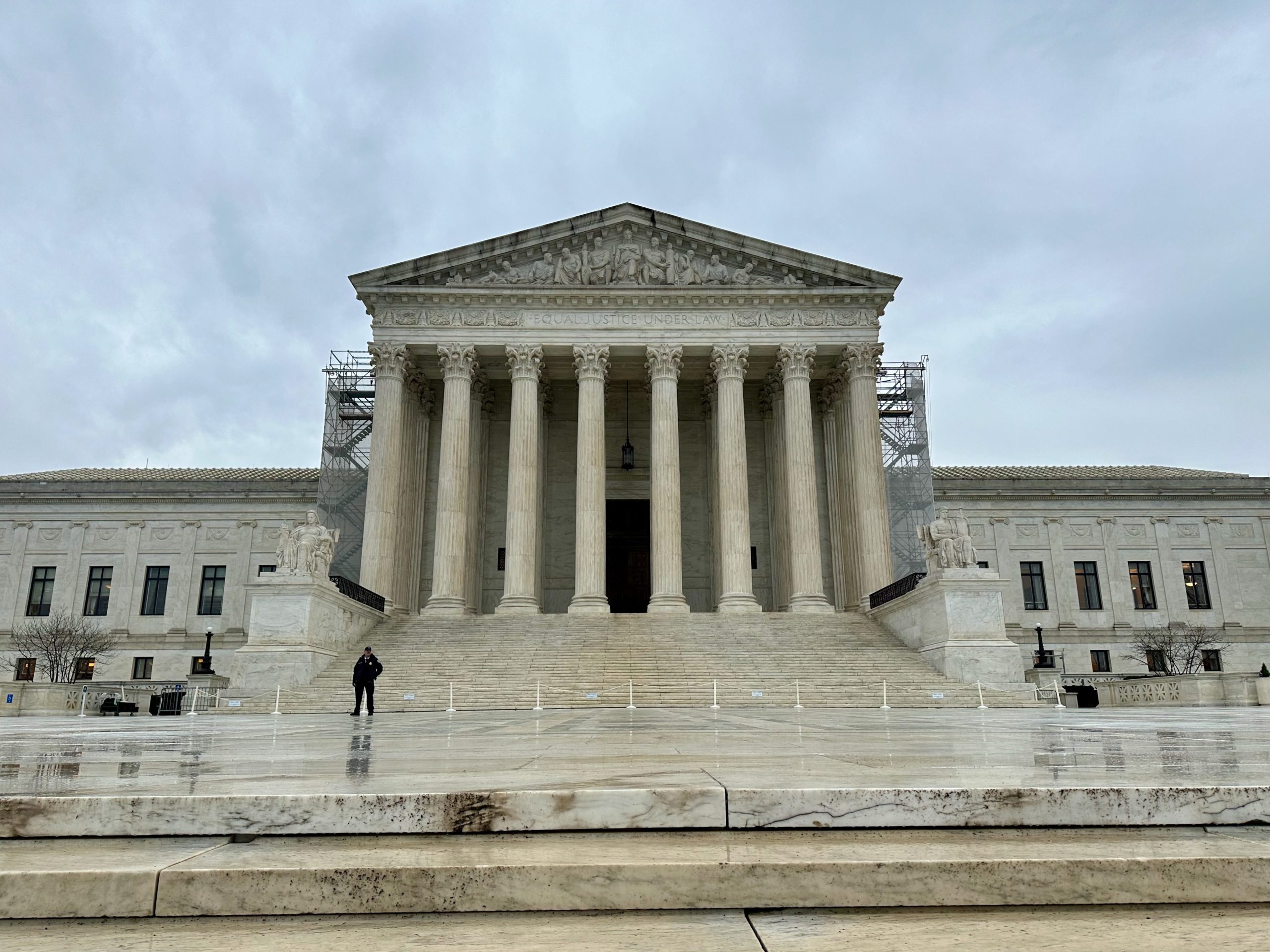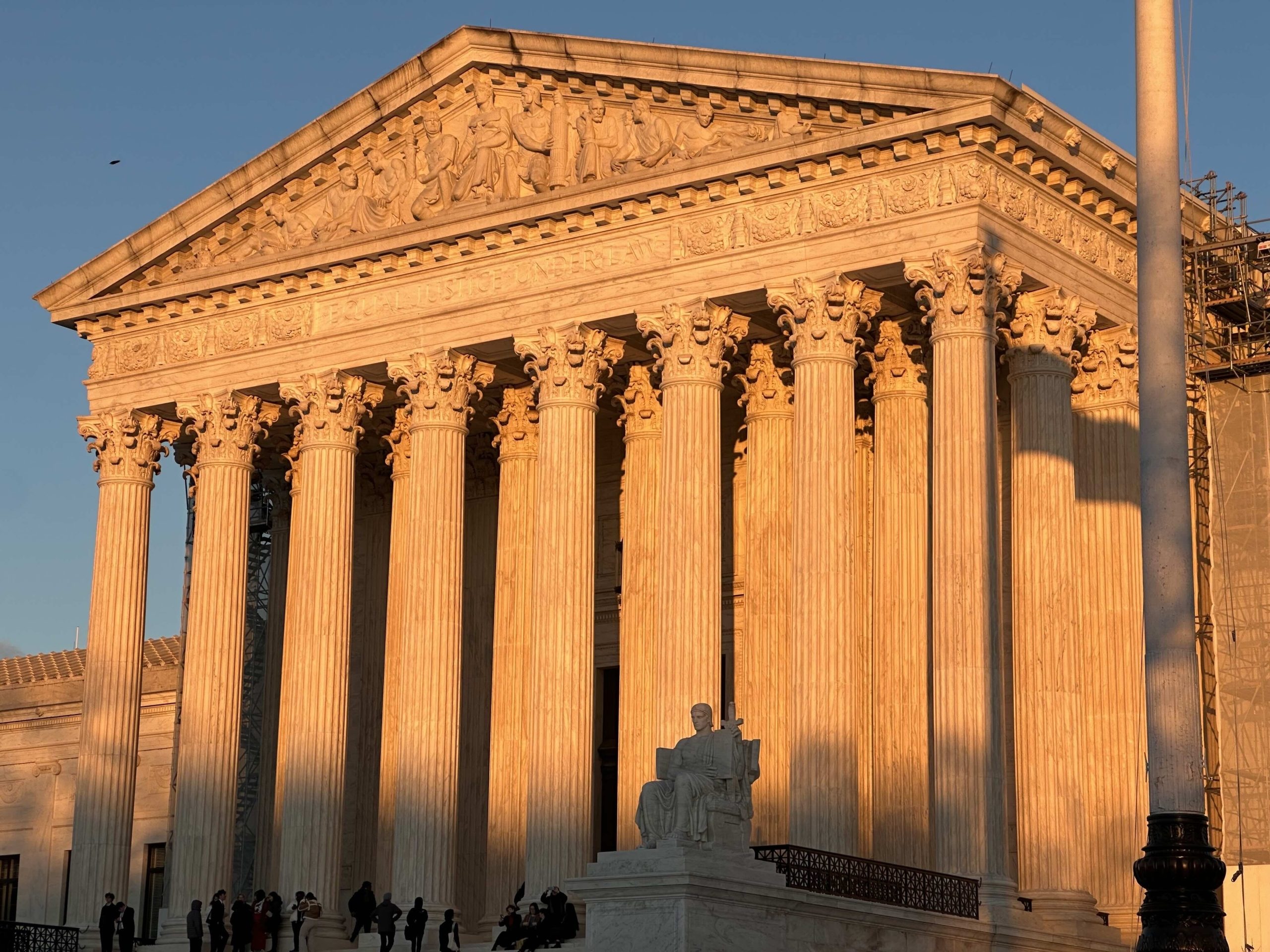Little guidance from court on New York interest requirement on national bank escrow accounts
OPINION ANALYSIS
on Jun 1, 2024
at 11:15 am
The justices ruled in Cantero v. Bank of America on Thursday. (Katie Barlow)
Justice Brett Kavanaugh’s opinion for a unanimous court Thursday in Cantero v. Bank of America will not be one for the casebooks or treatises, as it says almost nothing about how the lower court is supposed to reconcile provisions of the National Bank Act that protect national banks with a New York statute requiring all banks (including national banks) to pay interest on the escrow accounts they hold for their mortgage customers.
The difficulty arises because amendments to the National Bank Act in the 2010 Dodd-Frank Act offered a detailed standard for courts to use in considering whether the National Bank Act preempts a state “consumer financial law” like the one at issue here. If the state law is preempted, then national banks (like Bank of America) are free to ignore it, as the bank did here. Conversely, if it is not preempted, then national banks must comply. Dodd-Frank added a provision that says that such a law is preempted “only if” it “prevents or significantly interferes with the exercise by the national bank of its powers,” and goes on to specify that courts are to apply “the legal standard for preemption in the decision of the Supreme Court of the United States in Barnett Bank [v. Nelson].”
Kavanaugh devotes the bulk of his opinion to a bland summary of Barnett Bank. First, he explains, Barnett held that the state law in that case was preempted under the “significantly interfere” standard Dodd-Frank added to the National Bank Act. He then explains that Barnett “did not purport to establish a clear line to demarcate when a state law” is preempted under that standard. Rather, “Barnett Bank looked to prior cases of this Court where the state law was preempted, as well as several cases where the state law was not preempted.” Kavanaugh then offers several pages summarizing some of those cases – two earlier cases discussed in Barnett as “the kinds of state laws that significantly interfere” – and three examples of cases discussed by Barnett as good examples of “state laws that could apply to national banks” because they did not “significantly interfere.”
At that point, when the reader is waiting for the part of the discussion where Kavanaugh offers some guidance, he adds that the precedents he has summarized “furnish content to Barnett Bank’s significant-interference test,” and explains only that “[a] court applying that … standard must make a practical assessment of the nature and degree of the interference caused by a state law.” He concludes by stating that the law “is preempted” if it “is more akin” to the preemption examples from Barnett and “is not preempted” if it “is more akin” to the non-preemption examples. Turning to the case at hand, he tells us only that the lower court here “did not conduct that kind of nuanced comparative analysis,” because it relied on a “categorical test” drawn from an old case that predated Barnett. Because Congress “expressly incorporated Barnett Bank into the U.S. Code,” that facile analysis could not stand.
This opinion will satisfy few, as it provides no substantive guidance at all as to whether this statute, one of many similar statutes various states have adopted, is or is not preempted by the National Bank Act. It is as if a parent told a child “you haven’t even tried your homework yet so I refuse to tell you the right answer.” The court has said not a word, for example, to tell the lower court whether the proper test depends on how “significant” the “interference” is to the balance sheet of this bank in particular, a question that might make the laws preempted as to some banks but not others.
The regular reader of SCOTUSblog will know that in many contexts the current group of justices reach out aggressively to decide issues far from necessary to the decision. This case is exactly the opposite of that. For whatever reason, having taken the time to have briefing and argument on the ability of states to require national banks to pay interest on home-mortgage escrow accounts – a question of some import for the hundreds of millions of homeowners in the nation – the justices have left for another day any thoughts on the answer.






